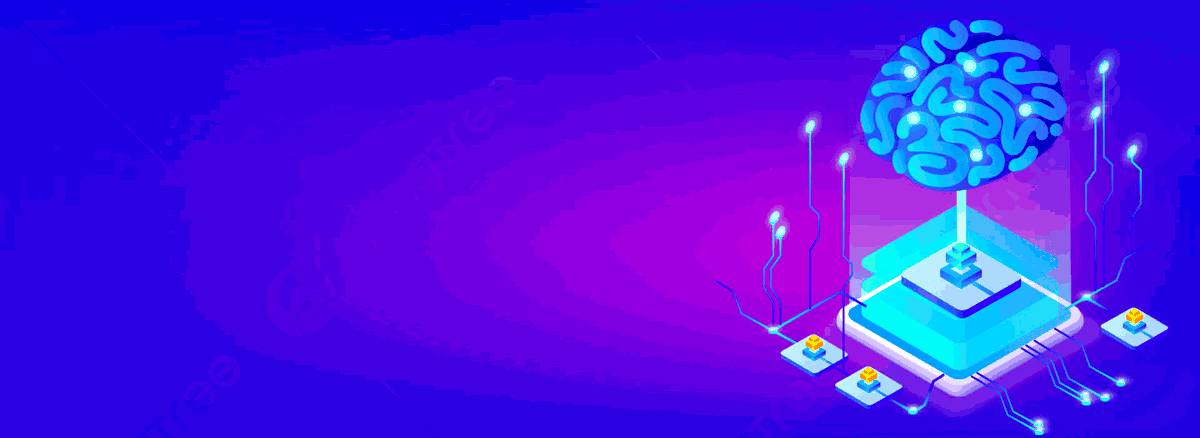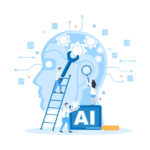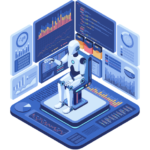 In today’s tech-driven world, selecting the right programming language for AI development is crucial. With several AI coding languages available, it can be challenging to choose the best one that meets the project’s requirements.
In today’s tech-driven world, selecting the right programming language for AI development is crucial. With several AI coding languages available, it can be challenging to choose the best one that meets the project’s requirements.
It requires careful consideration of factors such as ease of use, performance, scalability, and community support.
Choosing the right language for AI development can determine the success or failure of the project. It can significantly impact the project’s performance, the development time, and the development cost. Therefore, it is essential to identify the best AI programming language for your project.
Key Takeaways
- Choosing the right programming language is crucial for the success of an AI project.
- Factors such as ease of use, performance, scalability, and community support impact the choice of language for AI development.
- The top AI programming languages include Python, R, Java, C++, and Julia.
Factors to Consider When Choosing an AI Programming Language
Choosing the right programming language for AI projects can be a daunting task. With numerous AI coding languages available, it can be challenging to determine which one will suit your specific project requirements. Here are some important factors to consider when selecting an AI programming language:
1. Ease of Use
AI development is a complex task that requires a significant amount of coding. As such, it is essential to choose a programming language that is easy to learn, read, and write. Python and R are popular choices for AI development due to their simple syntax and readability.
2. Community Support
The popularity of programming languages can often be measured by their community support. An active and supportive community can provide helpful resources, libraries, and frameworks for AI development. Python, Java, and R have large and active communities that provide a plethora of resources for AI programmers.
3. Available Libraries and Frameworks
Libraries and frameworks are essential tools for AI programmers as they offer pre-built code and algorithms that can be used to create AI models. Python is known for its vast collection of AI libraries such as TensorFlow, Keras, and PyTorch. Java has popular machine learning libraries such as Weka and Deeplearning4j. R has a collection of libraries such as caret and mlr, which are designed for statistical modeling and machine learning algorithms.
4. Scalability
Scalability is an important factor to consider when selecting an AI programming language. When working with large datasets, a language that can handle the data processing requirements without sacrificing performance is ideal. Java and C++ are known for their scalability and efficiency when working with big data.
5. Performance
Performance is crucial when developing AI models. The language you select should have the capability to handle complex computations and algorithms efficiently. C++ is a popular choice for developing high-performance AI models as it has low-level access to hardware that allows for faster processing times.
6. Compatibility with Existing Systems
When working on an existing system, it is essential to select a programming language that integrates seamlessly with the existing system. For example, if the existing system is built using Java, it makes sense to continue using Java for AI development to ensure compatibility.
Considering these factors when selecting an AI programming language can help you choose the right language for your specific project needs. It is important to evaluate each language based on these criteria and make an informed decision to ensure successful AI development.
Popular Programming Languages for AI Development
Artificial Intelligence (AI) is transforming the world, and selecting the right programming language is crucial for its development. Here are some of the most widely used languages for AI development:
| Language | Advantages | Disadvantages |
|---|---|---|
| Python | Easy to learn and use, vast collection of libraries, suitable for machine learning | Slow performance, not ideal for large-scale systems |
| R | Strong in statistical analysis and data visualization, has a variety of libraries for machine learning | Not as versatile as Python, can be difficult to learn for some programmers |
| Java | Object-oriented, scalable, compatible with enterprise systems | Slower compared to other languages, fewer AI-specific libraries |
| C++ | Fast and efficient, low-level access to hardware | Complex language syntax, can be difficult to debug |
| Julia | High-level language features, fast and simple | Less community support compared to other languages, fewer libraries and frameworks |
Sometimes, the choice of programming language depends on the specific AI project requirements, the experience of the development team, and the available resources. However, these popular AI programming languages are common choices due to their strengths in AI development.
In the subsequent sections, we will discuss each of these languages in more detail.
Python for AI Development
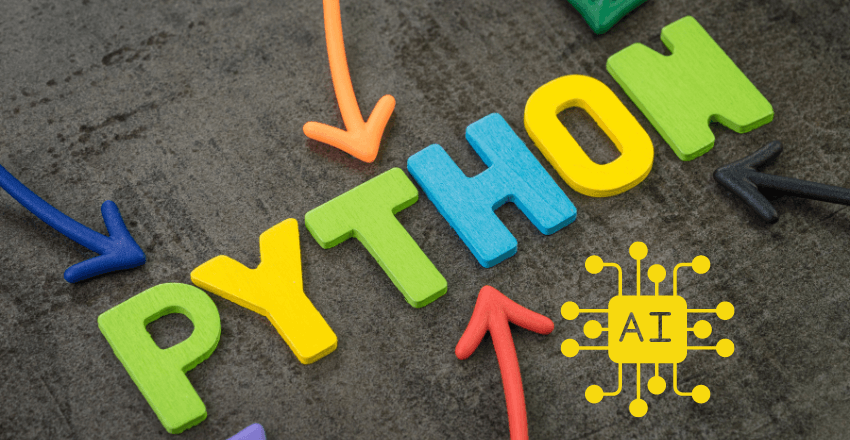
Python has become the most popular language for AI development due to its simplicity, readability, and wide range of libraries for machine learning. Python’s community support continues to grow, with a large number of developers creating and sharing open-source libraries for AI tasks.
One of the most popular libraries for AI development in Python is TensorFlow, an open-source machine learning framework that can run on GPUs and CPUs. TensorFlow provides a wide range of tools for machine learning, including neural networks, image recognition, and more. Keras is another popular library for building deep learning models in Python.
PyTorch is a machine learning library that is also gaining traction in the AI community. It provides a flexible, dynamic framework that allows developers to create and train complex models efficiently. Other popular Python libraries for AI development include scikit-learn, NumPy, and Pandas.
The simplicity of Python makes it an ideal language for beginners in AI development. Its clean syntax and straightforward design make it easy to write, test, and debug code quickly. Python’s scalability and performance also make it a suitable choice for large-scale AI applications.
Python can be used for a wide range of AI applications, including natural language processing, computer vision, and robotics. Some of the real-world applications of AI built with Python include Airbnb’s search ranking algorithm, Netflix’s movie recommendation system, and AlphaGo, a computer program that defeated a world champion at the board game Go.
R for AI Development

R is another popular language used for AI development. Its strength lies in statistical analysis and data visualization, making it a preferred choice for data scientists. R also has a range of machine learning libraries, including caret and mlr.
In AI development, R is commonly used for developing and implementing algorithms for data analysis and machine learning. Its flexibility allows developers to experiment and build customized solutions for their projects.
Developers can use R libraries such as ‘TensorFlow’, ‘Keras’ and ‘Torch’ to create neural networks and deep learning models. These libraries offer a range of pre-built functions and algorithms, simplifying the process of building advanced models.
Real-world applications of AI built with R include predictive modeling, natural language processing, image and speech recognition, and sentiment analysis.
Java for AI Development

Java is a popular programming language for AI development due to its object-oriented nature, extensive library support, and compatibility with existing enterprise systems. Its strong ecosystem and vast community make it a reliable option for developing complex AI systems.
Java offers several libraries dedicated to AI development, such as Deeplearning4j, Weka, and OpenNLP. These libraries facilitate the creation of AI models with numerous features such as natural language processing, computer vision, and speech recognition.
Java’s object-oriented approach and cross-platform compatibility make it an excellent choice for developing large-scale AI-based enterprise systems. Its JIT compilation and ability to handle large data sets effectively makes it a quick and efficient option.
However, Java may not be the best choice for small-scale AI projects due to its relatively high learning curve and complexity. Its syntax can also be verbose in comparison to other languages, leading to slower development times.
Despite these drawbacks, Java continues to be a widely-used language for AI development, with companies like IBM and Oracle heavily investing in its development for AI applications.
C++ for AI Development
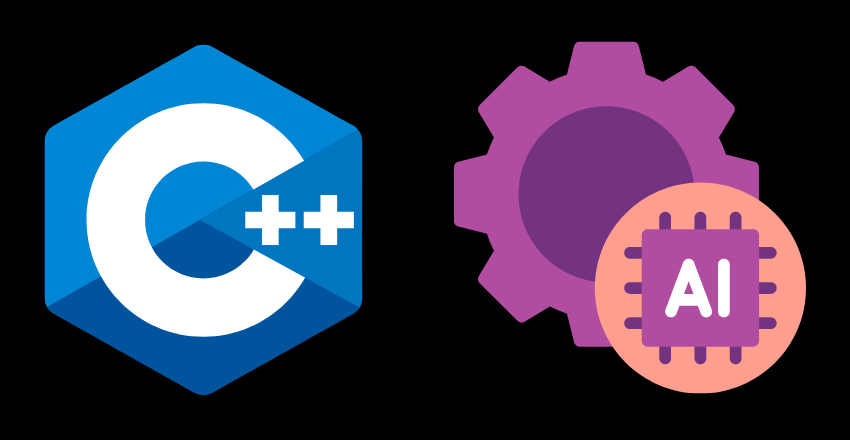
C++ is a popular choice for AI development due to its speed and efficiency. It allows low-level access to hardware, which is ideal for implementing complex algorithms. C++ is also a highly portable language, meaning that code can be easily moved across different platforms without modification.
While C++ requires more coding knowledge than some other AI programming languages, the resulting code can be much faster and optimized for performance. It also provides access to libraries such as OpenCV and TensorFlow, which are geared towards AI development.
C++ has been used for many real-world AI applications, including image recognition and natural language processing. Its powerful algorithms and speed make it a great choice for deep learning.
However, C++ can be challenging for beginners due to its complexity. It also has a steeper learning curve than other AI languages such as Python or R. Developers may need to invest more time and effort to master the language, but the benefits can be significant for large and complex AI projects.
Julia for AI Development
Julia is a high-level dynamic programming language designed to address the needs of high-performance numerical and scientific computing. It boasts of a clean syntax, just-in-time (JIT) compilation, and superior performance comparable to that of C and Fortran. Julia also has built-in support for parallel and distributed computing, making it an ideal choice for data-intensive applications.
Julia has a growing community of users and developers who are actively contributing to the development of libraries and frameworks for AI. Some of the popular Julia libraries for AI include Flux.jl, MLJ.jl, and Knet.jl. These libraries offer a wide range of functionalities for deep learning, reinforcement learning, and natural language processing.
AI development in Julia is gaining momentum due to its speed and simplicity. Julia’s just-in-time (JIT) compilation allows developers to write high-level code without sacrificing performance, making it easier to prototype and experiment with different AI models. Julia is also compatible with other programming languages like Python and R, enabling developers to leverage existing libraries and frameworks.
Examples of AI built with Julia
- Julia has been used to develop a differential equation solver that can simulate the spread of COVID-19 in real-time.
- Julia was used by researchers at MIT to develop a reinforcement learning algorithm for controlling robots.
- Julia has been used in the development of Gen, a probabilistic programming language for AI.
Julia is a promising language for AI development, especially for developers who prioritize performance and ease of use. Its growing community and support for advanced features make it a language worth considering for any AI project.
Comparison of AI Programming Languages
Choosing the right programming language for AI development can be overwhelming, given the number of options available. This section compares some of the popular programming languages for AI development and evaluates them based on various factors.
Python
Python is a popular choice for AI development due to its simplicity, readability, and vast collection of libraries such as TensorFlow, Keras, and PyTorch. It has a vast community of developers constantly contributing to its libraries, making it an efficient tool for creating complex AI models. However, Python’s performance may not be as efficient compared to lower-level languages like C++.
R
R is a language widely used for statistical analysis, data visualization, and machine learning. Its built-in libraries, such as caret and mlr, offer powerful tools for machine learning tasks. However, R may not be suitable for scaling up certain AI projects due to its limited capabilities in terms of system-level programming.
Java
Java is an object-oriented programming language that boasts a vast ecosystem and compatibility with existing enterprise systems. Its libraries, such as Deeplearning4j, offer powerful tools for machine learning tasks. However, Java may not be suitable for rapid prototyping, as it’s relatively slower to write and develop.
C++
C++ is a popular language for implementing high-performance systems as it offers low-level access to hardware and efficient memory management. C++ libraries, such as Caffe and TensorFlow, provide efficient tools for AI development. However, C++ development can be more complex and time-consuming compared to higher-level languages like Python.
Julia
Julia is an emerging programming language for AI development that offers high-level language features and speed. It’s designed to be both fast and easy to read, making it a potential alternative to Python. Julia’s compatibility with existing libraries such as TensorFlow, MXNet, and Flask make it an efficient tool for AI development. However, Julia’s community and library support may not be as extensive as compared to other languages such as Python and R.
Overall, the choice of programming language for AI development depends on the specific needs of the project. Python and R are popular due to their ease of use, extensive library support, and flexibility; Java and C++ are suitable for high-performance systems, and Julia is an evolving language worth considering. Evaluating the right language is a crucial step in building efficient AI models.
Other Programming Languages for AI Development
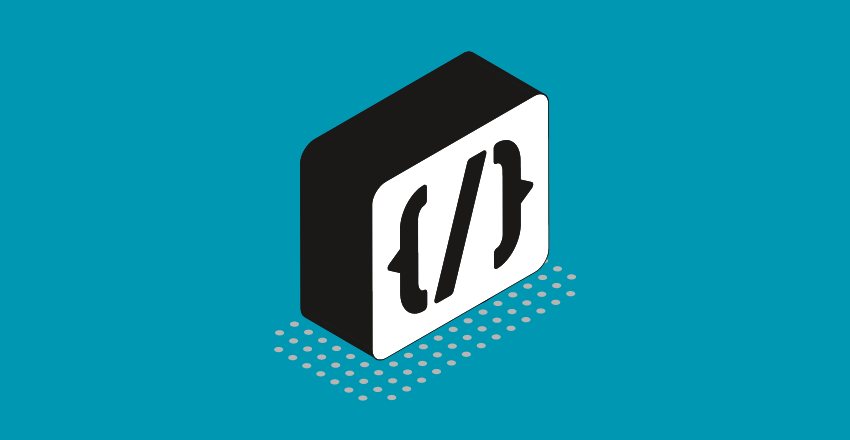
In addition to the popular AI programming languages discussed earlier, there are several lesser-known programming languages that can also be used for AI development. While these languages may not have as wide a range of community support or available libraries, they have unique features that may make them suitable for specific AI projects.
- Lisp: Lisp is a high-level language known for its flexibility and expressiveness. It is commonly used in the development of natural language processing and expert systems.
- Prolog: Prolog is a logic programming language that is excellent for developing rule-based systems and applications that require automated reasoning.
- MATLAB: MATLAB is a numerical computing environment that is frequently used in machine learning and statistical analysis.
While these programming languages may not be as well-known as Python or Java, they could offer distinct advantages for particular AI projects. It is important to evaluate the requirements of your project and select the programming language that is best suited for your needs.
Considerations for Developers in South America
When it comes to AI development, businesses often struggle to find the right talent with the necessary skills and experience. One solution that is gaining popularity is hiring AI developers from South America. This region boasts a pool of highly skilled developers who are proficient in various programming languages for AI development.
Aside from their skills, hiring AI developers from South America also offers cost advantages compared to hiring developers from other regions. Businesses can access top-tier talent at a significantly lower cost, which could help them allocate their resources more efficiently. Additionally, cultural compatibility is another benefit of hiring AI developers from South America for U.S.-based businesses.
The choice of programming language used in South America for AI development is vast and diverse, with professionals proficient in Python, R, Java, C++, and Julia, among others. The popularity of Python and R is increasing globally, and South America is no exception. Many developers in South America use these programming languages for AI development. Java and C++ are also popular due to their compatibility with existing enterprise systems.
Some of the most successful AI projects in South America were developed using programming languages like Python, R, Java, and C++. These projects have demonstrated the expertise and skills of AI developers in the region.
Businesses should consider hiring AI developers from South America for their AI projects. The region offers a pool of talented developers proficient in various programming languages and at a competitive price. Additionally, businesses can take advantage of cultural compatibility when working with developers from this region.
Final Thoughts on Choosing the Right Programming Language for AI

Choosing the best programming language for AI development is a critical decision that can have a significant impact on the success of your project. It’s essential to consider various factors before making the final decision. Factors such as ease of use, community support, available libraries and frameworks, scalability, performance, and compatibility with existing systems should be taken into account.
Among the popular programming languages for AI development, Python, R, Java, C++, and Julia each have their unique strengths and weaknesses. Understanding their differences can help you choose the most suitable language for your AI project. In particular, Python’s simplicity and R’s statistical analysis strengths make them popular choices for AI development.
Looking beyond the commonly used languages, alternative languages such as Lisp, Prolog, and MATLAB can also be used for AI development. These languages have their unique features and offer specialized libraries and frameworks.
When considering hiring AI developers, South America offers a talented pool of developers who are familiar with popular AI programming languages. Hire AI Developer is an AI development company in South America that provides access to skilled AI programmers at competitive prices.
As technology evolves, the AI development landscape is continually changing. Stay updated with emerging trends such as the rise of domain-specific languages, integration with cloud platforms, and deep learning frameworks.
Choosing the right programming language for AI development is a crucial step towards building successful AI projects. By considering various factors and staying abreast of emerging trends, you can make informed decisions that lead to successful outcomes.
External Resources
https://deeplearning4j.konduit.ai/
FAQ
Q: What factors should I consider when choosing an AI programming language?
A: When choosing an AI programming language, consider factors such as ease of use, community support, available libraries and frameworks, scalability, performance, and compatibility with existing systems.
Q: What are some popular programming languages for AI development?
A: Some popular programming languages for AI development include Python, R, Java, C++, and Julia.
Q: Why is Python often used for AI development?
A: Python is often used for AI development due to its simplicity, readability, and vast collection of libraries such as TensorFlow, Keras, and PyTorch.
Q: How is R used in AI development?
A: R is used in AI development for its strengths in statistical analysis, data visualization, and machine learning libraries like caret and mlr.
Q: What are the advantages of using Java for AI development?
A: Java is advantageous for AI development due to its object-oriented nature, strong ecosystem, and compatibility with existing enterprise systems.
Q: Why is C++ a popular choice for AI development?
A: C++ is a popular choice for AI development because of its speed, efficiency, and low-level access to hardware.
Q: How is Julia used in AI development?
A: Julia is used in AI development for its high-level language features, speed, and simplicity.
Q: How do the different AI programming languages compare?
A: The different AI programming languages can be compared based on factors such as ease of use, performance, community support, and library availability.
Q: Are there any lesser-known programming languages for AI development?
A: Yes, lesser-known programming languages such as Lisp, Prolog, and MATLAB can also be used for AI development.
Q: What are the considerations for developers in South America?
A: Developers in South America offer advantages such as a talented pool of AI developers, competitive pricing, and cultural compatibility.
Q: What are the emerging trends in AI programming languages?
A: Emerging trends in AI programming languages include the rise of domain-specific languages, integration with cloud platforms, and the impact of deep learning frameworks.
Q: What is the conclusion on choosing the right AI programming language?
A: When choosing the right AI programming language, considerations such as ease of use, community support, and library availability are crucial. Stay updated with emerging trends in AI programming languages.
Q: Where can I find additional resources on AI programming languages?
A: You can find additional resources on AI programming languages through books, online tutorials, websites, and relevant research papers.
Q: What is Hire AI Developer?
A: Hire AI Developer is a company that specializes in providing AI developers from South America. We offer expertise in AI development and the benefits of hiring AI programmers from our company.
Benjamin Bale is a distinguished expert in the field of AI development and an esteemed author for the “Hire AI Developer” blog. With a remarkable decade-long experience in the industry, Benjamin has cemented his reputation as a leading authority in AI app and website development, as well as AI backend integrations. His profound passion for AI and its transformative potential is evident in every aspect of his work.
Benjamin’s journey into the world of AI began at Edinburgh University, where he pursued his studies in AI and Mathematics. It was during this time that he cultivated a deep understanding and fascination for the subject. Throughout his career, Benjamin has accumulated extensive experience working with industry giants such as Goldman Sachs, Tencent, and Ali Express. These invaluable experiences have not only sharpened his skills in integrating existing systems with AI APIs but have also solidified his status as a consummate professional in the field.
Currently residing in the vibrant city of London, Benjamin finds solace in his role as both an author and developer. Beyond his professional endeavors, he takes great joy in the company of his faithful canine companion, Chad, and indulges his passion for snowboarding in the picturesque mountains of France. Benjamin’s unwavering dedication to advancing AI technology, combined with his wealth of knowledge and practical expertise, make him an invaluable asset to the “Hire AI Developer” team and an invaluable resource for readers seeking profound insights into the realm of AI.

